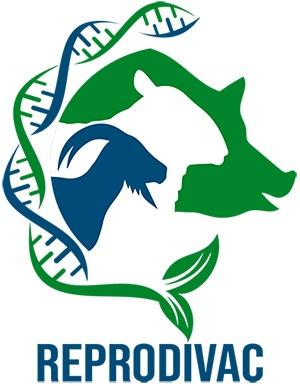REPRODIVAC - Next-generation vaccines and diagnostics to prevent livestock reproductive diseases of worldwide impact
Institutions
REPRODIVAC project : 16 partners in 7 European countries.
1 | Italian National Agency for New Technologies, Energy and Sustainable Economic DevelopmentPlant-based expression platform for the production of recombinant proteins. Development of vaccine delivery strategies based on rational antigen design. | ENEA | Italy |
2 | Wageningen University & ResearchMicrobiology laboratory (BSL3) with specific expertise regarding diagnosis and host-pathogen interaction studies of bacterial zoonotic pathogens and infections (Q fever, Tuberculosis, Brucellosis). | WUR | Netherlands |
4 | University of LleidaDiagnosis of swine diseases. Extensive experience in performing epidemiological studies for bacterial and viral diseases in livestock. | UdL | Spain |
4a | Centre D’estudis PorcinsAffiliated entity of the UdL with facilities to carry out animal experiments with BSL2 requirements. | CEP | Spain |
5 | Ceva Animal HealthFacilities for large scale production of vaccine antigens at BSL3. Expertise in vaccine manufacture and commercialisation. | CEVA | France |
6 | Friedrich Loeffler InstitutMicrobiology laboratories (BSL2 to BSL3) with specific expertise regarding diagnosis and host-pathogen interaction studies of viral and bacterial infections including Pseudorabies virus, Chlamydia abortus and Coxiella burnetii. | FLI | Germany |
7 | Centro De Investigacion Y Tecnologia Agroalimentaria De AragónExpertise in animal models for evaluating brucellosis vaccines and development and assessment of diagnostic tests. Expertise on brucellosis control and eradication strategies. | CITA | Spain |
8 | University of NavarraExpertise in Brucella genetics, virulence factors and immune response mechanisms. | UON | Spain |
9 | University of MurciaMicrobiology, pathology, and immunology of Chlamydia abortus infections, including in the mouse model. | UMU | Spain |
10 | École Polytechnique Fédérale de LausanneProtein engineering, computational design, immunoengineering, and synthetic biology. | EPFL | Switzerland |
11 | Associacio Porcsa-Grup de Sanejament PorcìDiagnostic laboratory specialised in swine diseases that cover 60% of the Spanish pig production. | GSP | Spain |
12 | CZ Veterinaria S.A. - CZ VaccinesExpertise in vaccine manufacture and commercialisation. | CZV | Spain |
14 | Pirbright InstitutePorcine and ruminant immunology. Isolation and recombinant expression of monoclonal antibodies from livestock. Porcine Reproductive Respiratory Syndrome immunobiology and vaccinology. | TPI | United Kingdom |
15 | Moredun Research InstitutePathogen biology, host-pathogen interactions, and ruminant immunology. Control and diagnosis of infectious diseases of livestock resulting from bacterial zoonotic pathogens (Chalmydia abortus and Q fever). | MRI | United Kingdom |
16 | École normale supérieure de LyonVirus particles structure determination by cryo electron toÉcole normale supérieure de Lyon École normale supérieure de Lyonmography and subtomogram averaging, structure analysis. | ENSL | France |
17 | University of OxfordExpertise in structural biology and vaccinology | UOX | United Kingdom |
REPRODIVAC has received funding from the European Union’s Horizon Europe research and innovation programme under Grant Agreement No. 101060813. Views and opinions expressed are however those of the author(s) only and do not necessarily reflect those of the European Union or other granting authorities. Neither the European Union nor the other granting authorities can be held responsible for them.

REPRODIVAC has received funding from the European Union’s Horizon Europe research and innovation programme under Grant Agreement No. 101060813. Views and opinions expressed are however those of the author(s) only and do not necessarily reflect those of the European Union or other granting authorities. Neither the European Union nor the other granting authorities can be held responsible for them.


















